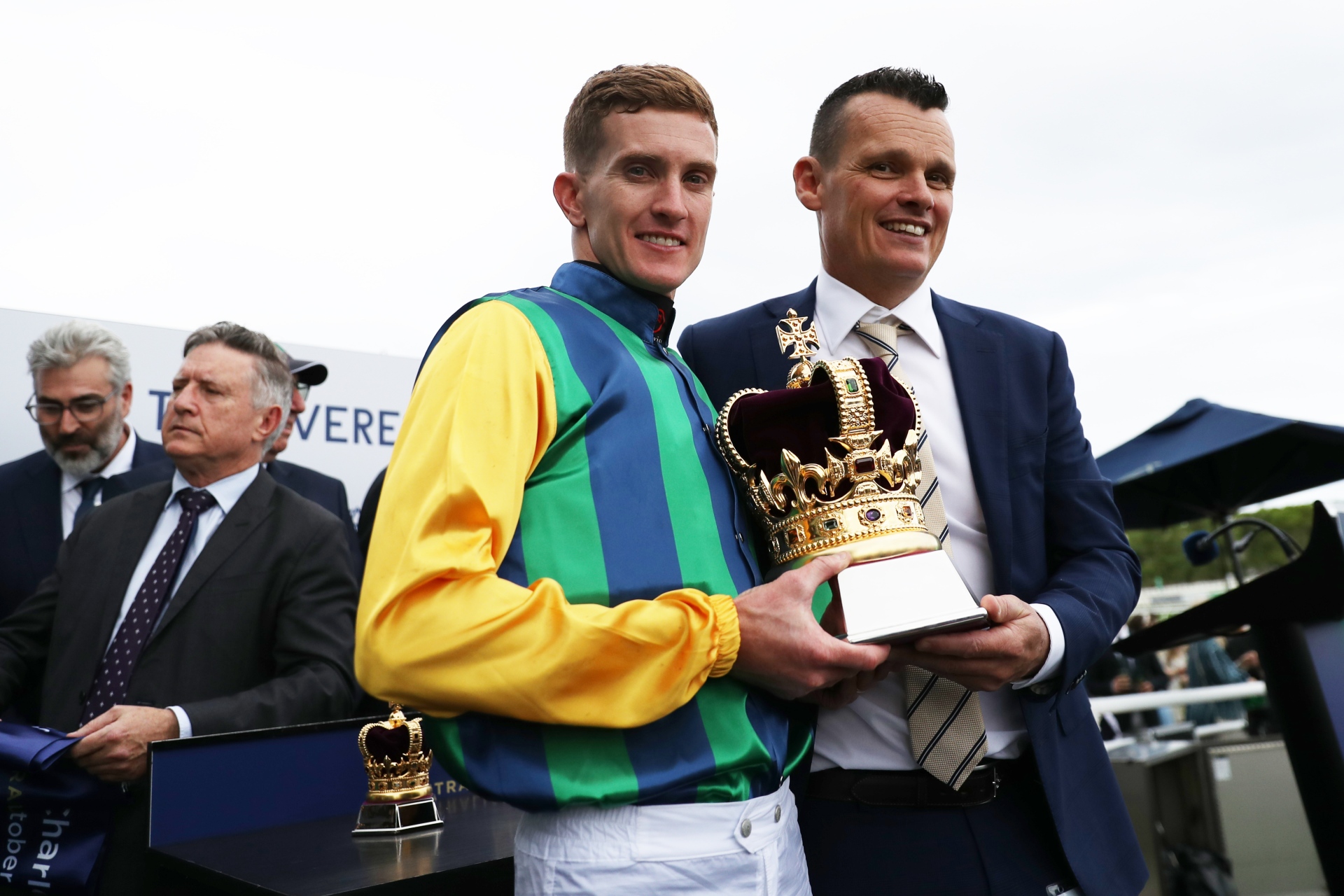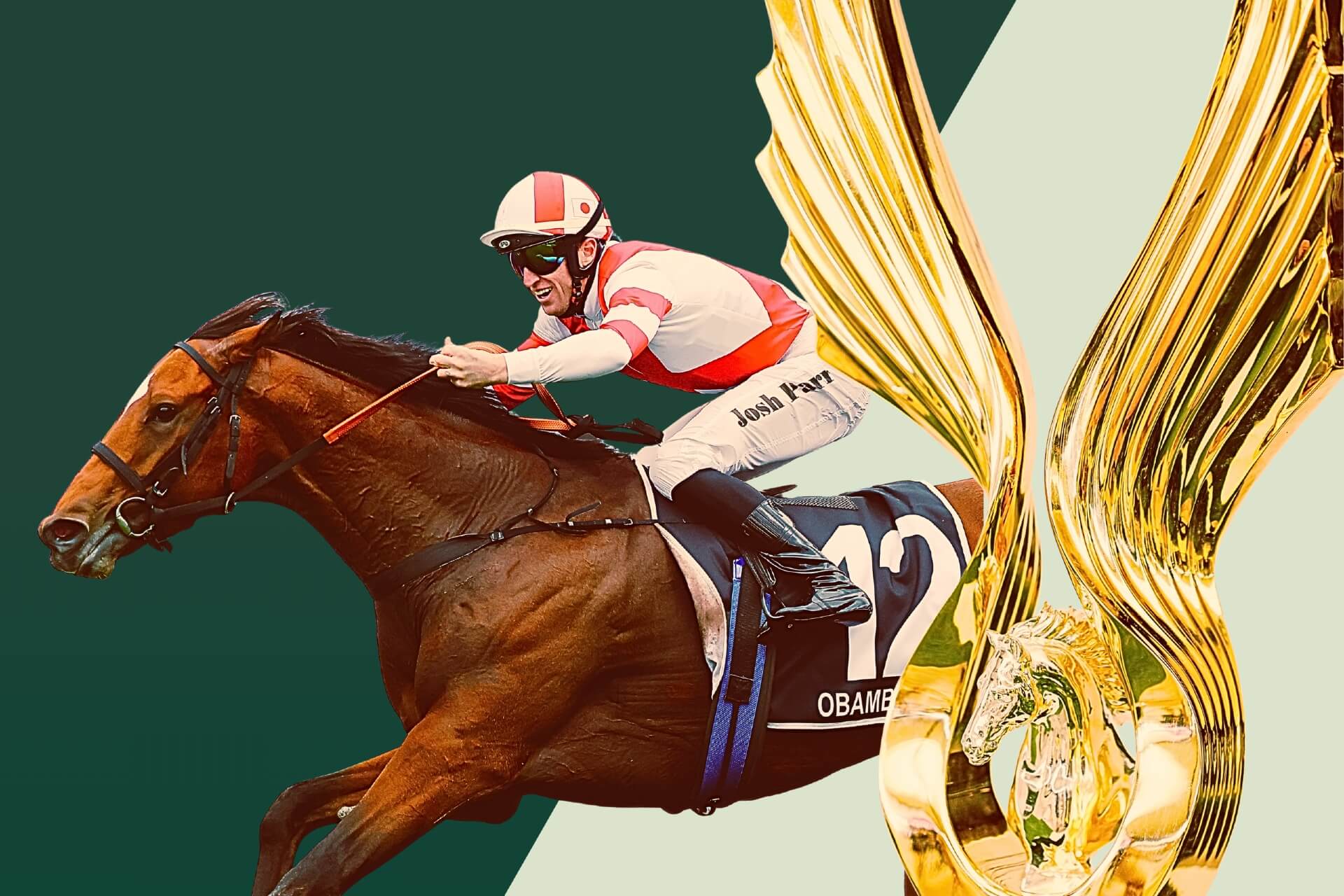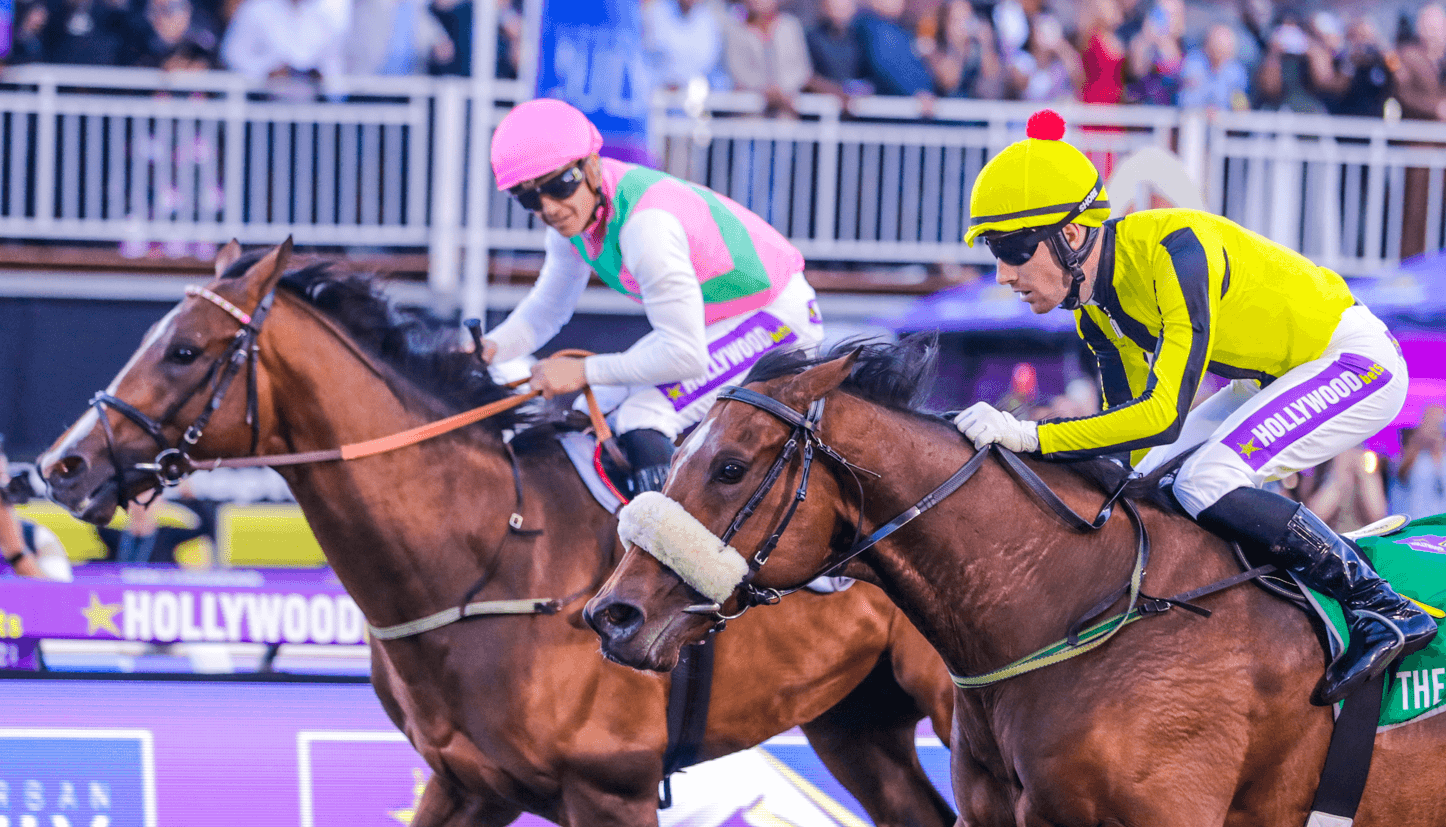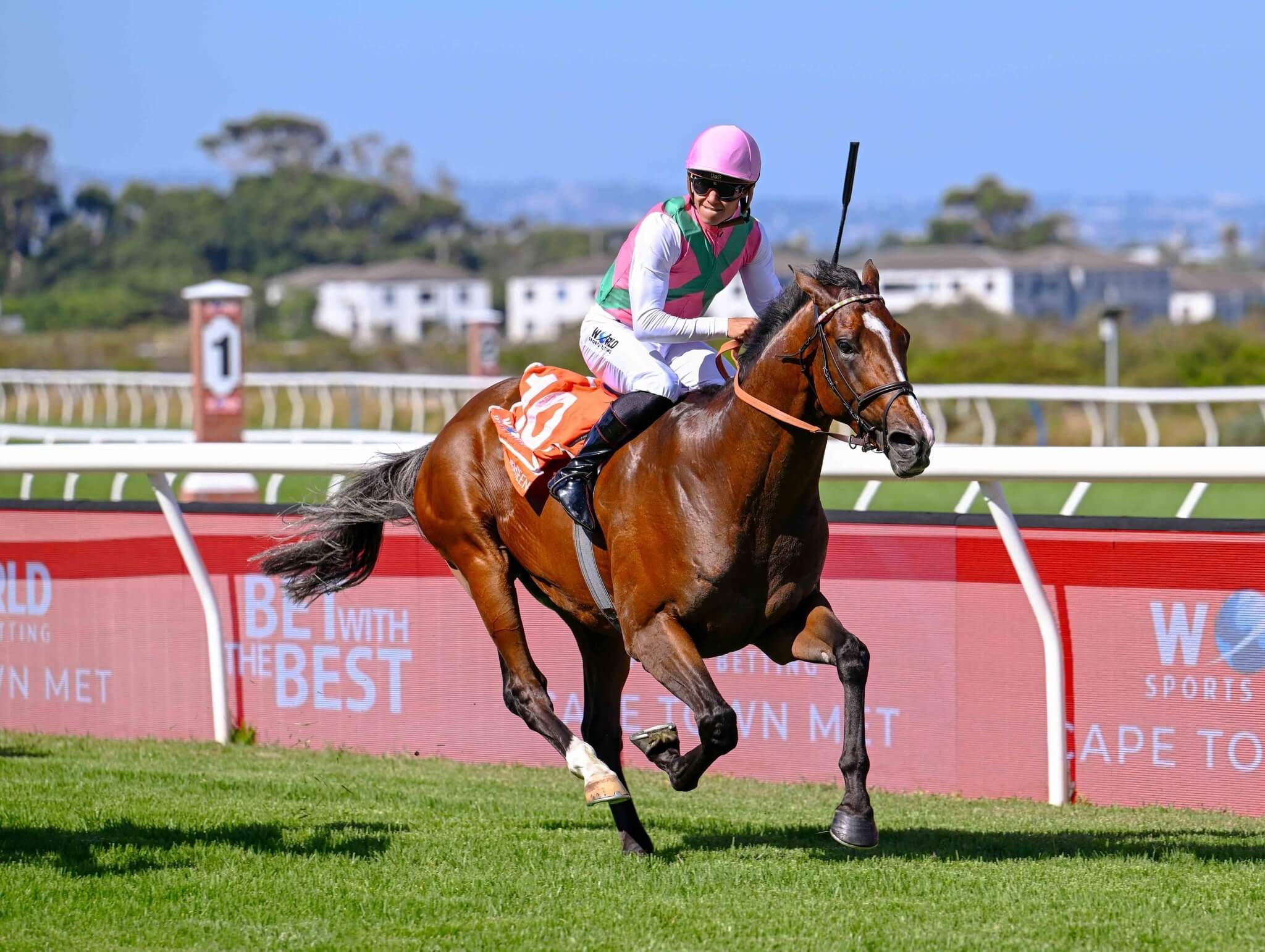What passes as a ‘battler’ in Australian racing these days anyway?
For non-Australian readers, a battler is a colloquial term for an underdog, especially a person fighting against the odds in a system that favours the rich and powerful.
It might seem strange that trainer Joe Pride was seemingly claiming underdog status after winning a A$5 million (US$3.4 million) race on Saturday at Randwick, but that is the situation for a trainer with ‘only’ 48 horses on his books. That used to be a solid number of horses 30 years ago in Australian racing, now he is the little guy defiantly shaking his fist at the system.
“The little mother and father shop on the corner beats the big supermarkets,” is how Pride framed his win with Ceolwulf in the G1 King Charles III Stakes in the post-race interview.
Pride was referring to the two biggest stables in Australian racing that have grown to more than 500 horses each: Ciaron Maher, who won both the Everest and Caulfield Cup on Saturday, and Chris Waller. Then there are also ‘smaller’ stables of around 300 each: Gai Waterhouse/Adrian Bott and Annabel Neasham and the Lindsay Park Racing operation of Ben, Will and JD Hayes.
Australia’s huge prizemoney has fuelled an arms race among the big stables that starts at the yearling sales, results in fields full of stablemates and has raised concerns from many in the racing industry.
“Racing has been dominated by some big stables of late and for our stable, a medium-sized stable to compete on the big stage here, I am very proud,” Pride said.

Australian racing has a rich history of ‘battlers’ and more than any jurisdiction and compared to other countries, the tales of cheap purchases by small-time owners and trainers that have gone on to win millions in prizemoney are relatively commonplace. The most famous of recent times was Takeover Target, who cost part-time taxi driver trainer Joe Janiak A$1,750 and won A$6 million between 2004 and 2009.
Such has been the prizemoney revolution in Australia that G1 The Everest winner Bella Nipotina collected more (A$7 million) on Saturday than Takeover Target won in a 41-start career that saw him win in every mainland state capital city of Australia, as well as Japan, Singapore and England.
“I don’t like the way we are going with these super stables and it’s nice when you get a chance to fight back,” Pride told Idol Horse after Ceolwulf’s win. “The average owner and punter look at Waller and Maher and think, ‘Well, they are just the best trainers’ – but are they? Or do they just have the most horses? I am not taking anything away from them as trainers but we can do a great job too.”
It may be too late – and, at the very least, highly difficult – for Australia to adopt limits on stable numbers similar to closed shop jurisdictions like Hong Kong or Japan, but it would be a pity if stables like Pride’s or smaller were swallowed up by stables that are dominating.
That isn’t to say these mid-sized stables are completely disadvantaged. Ceolwulf’s jockey Chad Schofield said Pride had a remarkable eye for detail and knowledge of his individual horses.
“Ten of his 48 horses ran today on Sydney’s biggest day,” Schofield said. “That goes to show how precise and exact he is as a trainer. He has a small, boutique stable but he is the ultimate caregiver for his stable.
“He is unbelievable. The way he talks about his horses: everything he says about his horses shows so much insight and the way he improves his horses from preparation to preparation and the longevity of his horses is just amazing. That is why I am so excited about being on Ceolwulf.”
Schofield is right: under Pride’s care, Ceolwulf could be a top line weight-for-age contender for years to come. It is interesting to note that Pride learned his trade under 12-time Hong Kong champion John Size, a trainer also famous for his attention to detail and consistency, and also in a system that puts a cap on stables at 70 horses.
Down in Melbourne jockey Harry Coffey, celebrating his 29th birthday, was also claiming battler status after his superb front-running ride aboard Duke De Sessa in the Caulfield Cup.

Coffey’s remarkable against-the-odds story – he has cystic fibrosis – and humble personality has endeared him to racing fans and his post-race comments were on brand.
“It’s not supposed to happen to people like myself. I’m considered a battler,” he said. “People like to laugh about how I’m a battler and a country boy.”
It is unlikely anybody will be laughing at Coffey’s ability now. The Caulfield Cup was a third career Group 1 but a win in such a high profile race might have been a breakout performance that changes the broader perception of him. Star jockey Damian Lane shares the same manager as Coffey, Dean Hawkes, and said his ‘stablemate’ is much more than a feel-good story.
“He is a very good jockey and he has an exceptional understanding of horses,” Lane told Idol Horse. “He is a rare proper horseman.”
More than most countries, Australians like their stars to be humble, but the ability to accept a win or loss with dignity is an admirable attribute. Pride of Jenni’s incredible front-running style makes her a fan favourite but the mare’s outspoken owner Tony Ottobre is beginning to wear thin on those same fans.
On Saturday he complained about the tactics employed by rival jockey Adam Hyeronimus on Major Beel, who maintained a wide line after the start of the King Charles III Stakes. Ottobre alleged improper riding and stewards felt ‘duty bound’ to question the riders involved but almost immediately cleared Hyeronimus of improper riding.
It isn’t the first time Ottobre’s attitude has caught the attention of racing fans. In the last 12-months Ottobre banned his jockeys from speaking to official racing media and started an account on X that was soon deleted after a series of heated interactions with fans.
Perhaps the owner could take some lessons in class from Everest-winning jockey Craig Williams. After winning the 2022 Everest on Giga Kick, Williams was publicly criticised after losing the G2 McEwen Stakes last year on that horse and was sacked as jockey.
On Saturday, he rode Bella Nipotina to a half-head victory over Giga Kick.

So here was Williams’ chance to exact some public revenge. Instead, he was a gracious winner.
“Getting taken off Giga Kick in those circumstances wasn’t a nice experience, he was a horse that I believed in and could see how good he was and I enjoyed being part of his development,” he told Idol Horse. “But that is all I am, a small part, I am just a spoke in a very big wheel that allowed Bella Nipotina to win today.”
Williams is also a lightning rod for criticism, few top ranked riders attract the vitriol he does when things go wrong. So what is a battler? Maybe it’s not such a bad thing. Williams’ everyman touch definitely gives off battler vibes but he has won 79 Group 1s and now two Everests.
And what about Ciaron Maher? His story is one of a battler, starting with six boxes on his dad’s dairy farm in the tiny town of Winslow in country Victoria.
His stable now has a corporate structure, a CEO and a marketing department. That shouldn’t throw shade on his ability as a trainer: there are few trainers in history with his level of success that can match his versatility. He wins jumps races on his home patch of Warrnambool and on Saturday he won an Everest and Caulfield Cup within an hour.
Maybe being a battler, or at least a former one, isn’t such a bad thing after all ∎




